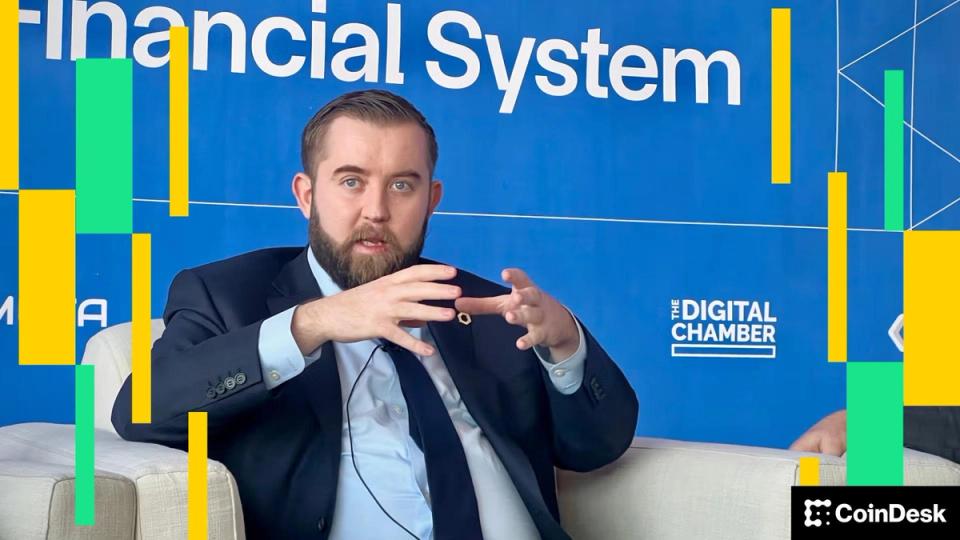In this week’s Saturday seminar, experts propose methods to regulate the metaverse.
Former professional basketball player Shaquille O’Neal hosted one of 2022’s biggest New Year’s Eve celebrations, which featured a roller rink, marching band and performances by rappers Cardi B and Ludacris. But O’Neal’s partygoers weren’t in Times Square or on the Las Vegas strip—they were in the metaverse.
The metaverse, a term first coined by science fiction writer Neal Stephenson in 1992, refers to an interactive and immersive virtual world where people spend their digital lives. Experts have described the metaverse, which users can access through computers and virtual reality devices, as the next iteration of the Internet. There, users can interact with each other and the digital environment through online avatars. Just like in the physical world, avatars in the metaverse can socialize, attend work meetings, play games, and perform many other everyday activities.
Although the metaverse may look and feel like the real world, the digital and physical worlds differ in one key area: the metaverse is highly unregulated.
Experts have raised concerns about the lack of regulatory oversight because metaverse users can fall victim to very real-world harms such as fraud. For example, transactions in the metaverse often use cryptocurrencies, which lack government-backed fraud protection. In addition, assets in the metaverse can be sold as non-fungible tokens (NFTs), which are digital assets with non-tangible values that can be fraudulently manipulated.
The metaverse is in its early stages of development and growing rapidly. Major tech companies like Google and Apple have invested significant capital to build the metaverse, and in 2021 Mark Zuckerberg launched a new company brand, Meta, focused on “bringing the metaverse to life.” As a result, many experts argue that regulatory action must keep pace with metaverse technology to protect users from harm.
In this week’s Saturday seminar, experts discuss the dangers of an unregulated metaverse and propose regulatory solutions.
In a recent article in the European Journal of Futures Research, Ljubisa Bojic from the University of Belgrade examines developments in the rule-setting power of the metaverse. Because technology-related legislation and policies emerge in the wake of a technology’s adoption rather than before its emergence, he argues, large technology companies often operate with little regulation, giving them the power to metaverse identity, ideology, and truth. form users. This lack of regulation, Bojic argues, raises serious concerns about ownership and democratization processes in digital spaces, as well as the amplification of social ills such as hate speech, racism and sexism perpetuated by digital echo chambers. Money transfer laws govern virtual platforms with the ability to exchange in-world digital assets for government-issued currency or cryptocurrency, explains Jon M. Garon of Nova Southeastern University Shepard Broad College of Law in a recent piece in the Marquette Law Review. Garon argues that this legal oversight subjects in-game banking and investment services to actual government regulation, and potentially to the jurisdiction of various US financial regulatory bodies. Because the metaverse is likely to become home to many illegal or heavily regulated pastimes such as the sale of illegal items and gambling, Garon argues, financial services companies are likely to avoid providing support for these activities, making their cooperation with these digital platforms more difficult. Among other risks, he claims, it could lead corporations to segment and separate their operations to avoid an “unregulated, virtual wild west,” creating an individual Internet world rather than a metaverse. In a recent article in the Penn State Law Review, Stephanie L. Tang of Baylor Law School discusses the role of cryptocurrency and NFTs in the metaverse and offers potential approaches to virtual asset valuation and distribution in divorce proceedings. Cryptocurrencies and NFTs play a crucial role in the metaverse’s digital economy, Tang explains, as users exchange these currencies to buy and sell monetizable digital assets such as virtual real estate. The metaverse poses a unique obstacle to the division of such virtual assets within divorce proceedings, she argues, as they can be difficult to identify, characterize, value and fairly distribute. To tackle these elusive assets, Tang suggests that courts expand the traditional framework of divorce proceedings by instituting uniform discovery requests for virtual asset identification, retaining forensic experts for virtual asset characterization, and holding separate evidentiary hearings for virtual asset valuation. the 2022 International Conference on Virtual and Augmented Reality Simulations, Louis B. Rosenberg of Unanimous AI presents potential regulatory solutions to prevent the exploitation of users within the metaverse. While conceding that virtual reality simulation necessitates a higher level of data tracking, Rosenberg nonetheless suggests that regulators limit the collection, analysis and storage of user data. He suggests requiring providers to notify users of when their data is tracked and how long it is stored. Intrusive emotional and psychological data requires tighter regulation, he argues, as third parties can use this information to fuel manipulative marketing practices. Rosenberg suggests that regulators take further steps to limit such marketing in the metaverse. He explains that vendors can manipulate users’ “worlds” by injecting targeted product placements and fake user personas to advertise products without ad disclosure. Furthermore, he claims, third parties can weaponize these practices to spread controversial political messages and disinformation. In a forthcoming article in the Indiana Law Journal, Zhaoyi Li of the University of Pittsburgh School of Law explains how an information confidentiality duty, or a duty not to mishandle consumer data, is necessary for the expected expansion of the metaverse and can help to protect users’ information. In today’s information age, Li argues, companies still abuse users’ data. She proposes a model in which such a duty is imposed on Data Protection Officers (DPOs), who are independent experts hired by companies to monitor their data collection practices. The information confidentiality duty should be imposed on DPOs rather than companies, Li argues, because they are less likely to protect company misconduct and can better serve users’ interests. Li argues that this framework will be useful in preparing for the metaverse’s “new age of digitization.” In a forthcoming article in the Arizona Law Journal of Emerging Technologies, Michael D. Murray of the University of Kentucky J. David Rosenberg College of Law analyzes how existing trademark law applies to NFTs. The metaverse uses NFTs in a variety of ways, Murray describes. For example, he discusses, NFTs can be treated as investments, collectibles or ownership deeds. NFTs attached to words or images can infringe on existing trademarks, Murray explains, but trademark law has only been applied in lawsuits dealing with NFTs in cyberspace. NFTs in the metaverse will not change existing trademark law, Murray argues, as the metaverse merely provides a new platform for trademark infringement.
Disclaimer for Uncirculars, with a Touch of Personality:
While we love diving into the exciting world of crypto here at Uncirculars, remember that this post, and all our content, is purely for your information and exploration. Think of it as your crypto compass, pointing you in the right direction to do your own research and make informed decisions.
No legal, tax, investment, or financial advice should be inferred from these pixels. We’re not fortune tellers or stockbrokers, just passionate crypto enthusiasts sharing our knowledge.
And just like that rollercoaster ride in your favorite DeFi protocol, past performance isn’t a guarantee of future thrills. The value of crypto assets can be as unpredictable as a moon landing, so buckle up and do your due diligence before taking the plunge.
Ultimately, any crypto adventure you embark on is yours alone. We’re just happy to be your crypto companion, cheering you on from the sidelines (and maybe sharing some snacks along the way). So research, explore, and remember, with a little knowledge and a lot of curiosity, you can navigate the crypto cosmos like a pro!
UnCirculars – Cutting through the noise, delivering unbiased crypto news







